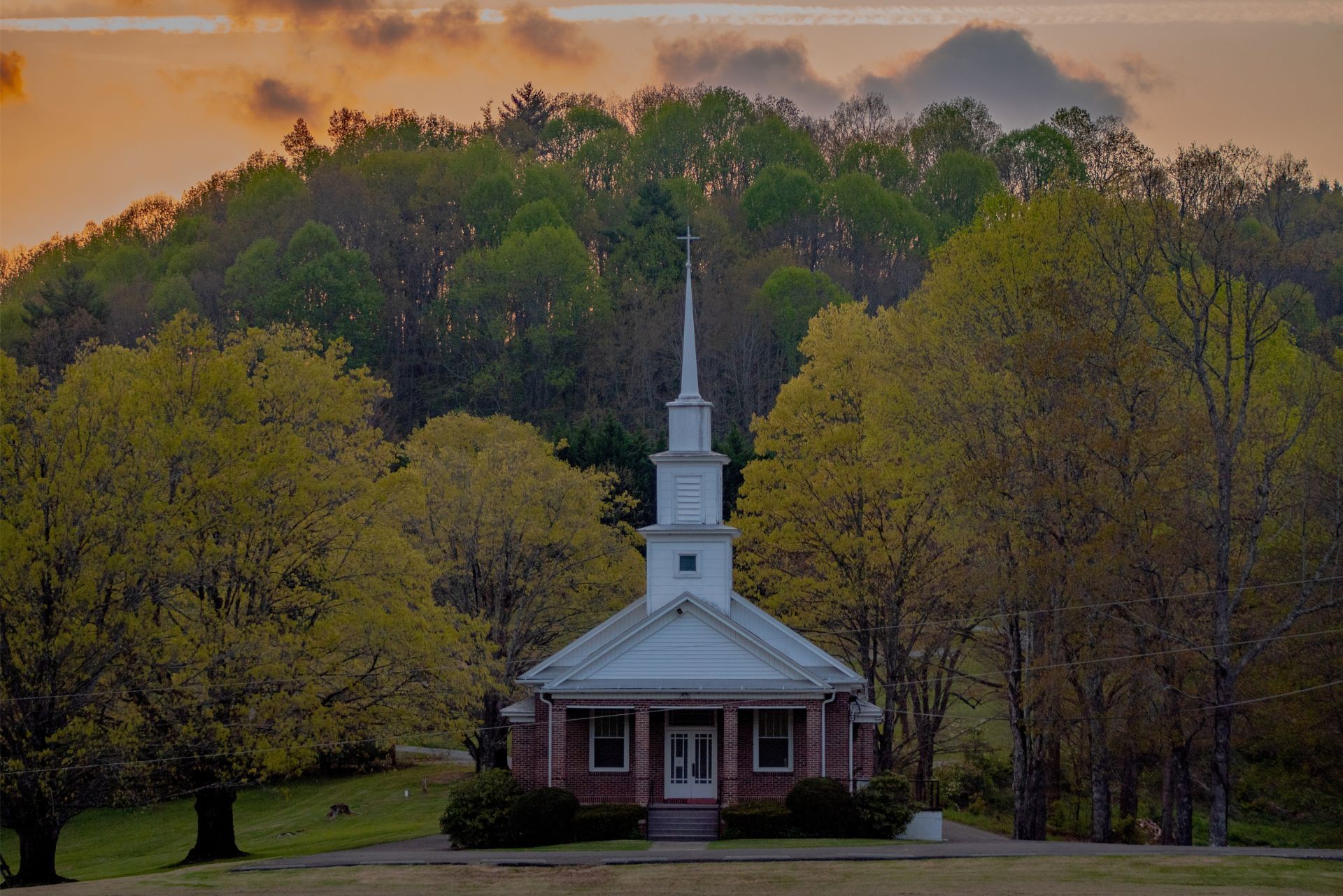Top 3 Recommended Policies

By: Lance Hale
Licensed Commercial Insurance Specialist
425-320-4280
The Evergreen State is home to roughly 3,500 congregations spread from the rugged Pacific coastline to the rolling Palouse. Each faith community serves as both a spiritual refuge and a community hub, hosting worship, food banks, after-school tutoring, weddings, funerals, and countless outreach events. Those diverse activities expose churches to a wide range of risks that look very different from the hazards facing a typical business. Understanding the nuances of Washington church insurance is therefore critical for leadership teams that want to protect people, property, and mission in a sustainable way.
A well-built insurance program is only one piece of a broader risk-management strategy, yet it often becomes the financial backstop that keeps a ministry afloat when disaster strikes. Wildfire smoke drifting west from the Cascades, heavy coastal windstorms, and the ever-present possibility of a subduction-zone earthquake underline how vulnerable structures can be in this region. Add evolving liability exposures—cyber theft of online tithes, allegations of pastoral counseling negligence, or injuries sustained on mission trips—and the need for comprehensive coverage becomes unmistakable.
Why Churches in Washington Need Specialized Insurance
Churches occupy a unique legal and cultural space. They welcome the public free of charge, rely heavily on volunteers, and often store irreplaceable historical artifacts along with expensive audiovisual equipment. In Washington, weather extremes compound those inherent vulnerabilities: the National Weather Service recorded more than 120 severe wind events statewide in the past five years, while the Department of Natural Resources lists over 1,000 active fault lines capable of producing damaging earthquakes. Standard commercial policies rarely contemplate that mix of property and liability exposures, which is why specialized church forms exist.
Beyond the physical hazards, Washington congregations face growing societal scrutiny. A 2023 report by the Attorney General’s Office noted a 15 percent year-over-year increase in civil actions tied to nonprofit governance. Claims alleging sexual misconduct, financial mismanagement, or wrongful employment practices can devastate an organization’s reputation overnight. Tailored coverage—from directors and officers (D&O) insurance to sexual misconduct liability—offers legal defense and settlement funds that general liability alone will not provide. In short, specialized church insurance aligns protection with the multifaceted reality of ministry in the Pacific Northwest.
Additionally, the diverse activities that churches engage in further complicate their insurance needs. Many congregations host community events, youth programs, and outreach initiatives that can increase their exposure to accidents and injuries. For instance, a church picnic or a youth retreat may involve activities that pose risks, such as sports or outdoor adventures. Without the right coverage, a single incident could lead to significant financial repercussions. Specialized insurance policies can address these risks by including coverage for event liability, ensuring that churches can continue their mission without the looming threat of financial ruin from unforeseen accidents.
Moreover, the digital age has ushered in new challenges for churches, particularly concerning data security and privacy. With many congregations now maintaining online donation platforms and digital communication channels, they are increasingly vulnerable to cyber threats. A data breach could expose sensitive information about members and donors, leading to costly legal battles and loss of trust within the community. Specialized insurance products, such as cyber liability coverage, are essential for safeguarding against these modern risks, allowing churches to embrace technology while protecting their congregational integrity and financial stability.
Core Coverages Every Washington Church Should Consider
A solid insurance foundation generally begins with five essential policy types. While exact limits and deductibles must be customized, these building blocks appear in nearly every comprehensive program crafted for Washington congregations.
Property Insurance
Property coverage reimburses repair or replacement costs when buildings, stained-glass windows, musical instruments, or office equipment are damaged by a covered peril. In Washington, underwriters pay close attention to earthquake and volcanic risks; Mount Rainier is still classified as active, and the state sits squarely within the Cascadia Subduction Zone. Adding an earthquake endorsement—or a standalone quake policy—can be the difference between quick restoration and a prolonged rebuilding campaign funded solely by donations.
General Liability
Slip-and-fall injuries during a Sunday potluck, damaged vehicles in the parking lot, or accidental harm caused during community outreach are typical claims paid under general liability. Washington’s comparative negligence laws mean multiple parties can share fault, so legal defense costs often exceed medical payouts. A $1 million per-occurrence limit remains common, but large congregations may opt for $2 million or layer excess liability umbrellas for added peace of mind.
Pastoral Professional Liability
Also called counseling liability, this coverage addresses allegations that pastoral advice led to emotional distress, marital breakdown, or self-harm. Mental-health awareness has grown sharply across the state; according to the Washington State Department of Health, counseling-related complaints filed against clergy increased 9 percent between 2020 and 2022. A professional-liability endorsement pays for legal defense and settlements, safeguarding both clergy and the church itself.
Workers’ Compensation
Washington law requires any organization with employees—full-time, part-time, or seasonal—to carry workers’ compensation through the state-run fund managed by the Department of Labor & Industries (L&I). Volunteers are generally exempt, yet many churches purchase volunteer-accident medical policies to offer goodwill protection. L&I also audits payroll annually, so accurate record keeping on clergy housing allowances and musicians’ stipends is essential to avoid surprise premium bills.
Commercial Auto
From 15-passenger vans ferrying youth groups to staff cars visiting shut-ins, church vehicles create sizable liability exposures. Even if a congregation owns no autos, a “hired and non-owned” endorsement covers rented vans and volunteers’ cars used on church business. Washington’s minimum liability limits—currently $25,000 per person, $50,000 per accident—are too low for most ministries; insurers often recommend at least $1 million combined single-limit to shield assets against catastrophic claims.

Add-On Coverages and Emerging Risks
The insurance landscape never sits still. New technologies, social expectations, and regulatory trends give rise to emerging risks that basic policies overlook. Forward-thinking churches in Washington increasingly round out their programs with the following endorsements.
Cyber Liability
Online giving platforms, livestreamed services, and cloud-based member databases create tempting targets for hackers. The FBI’s Internet Crime Complaint Center reported 4,268 cyber-crime incidents in Washington during 2022, a 7 percent increase year over year. Cyber liability pays for forensic investigations, data-recovery costs, notification letters mandated by the Washington State Data Breach Law, and even ransom payments where legally permissible.
Sexual Misconduct Liability
Few claims erode trust faster than allegations of abuse. Dedicated sexual-misconduct coverage provides specialized legal counsel and crisis-management resources in addition to standard indemnity limits. Many carriers also fund background checks and training modules that help churches meet Safe Church or MinistrySafe standards—critical tools when volunteers outnumber staff by ten to one in many congregations.
Directors & Officers Insurance
D&O policies protect board members, trustees, and pastors against claims of wrongful governance decisions, such as mishandling funds or violating bylaws. The Washington Nonprofit Corporation Act allows plaintiffs to pierce the corporate veil in cases of gross negligence, placing personal assets at risk. A D&O policy steps in to fund defense costs and settlements, ensuring capable volunteers are not deterred from leadership roles.
Inland Marine (Scheduled Property)
“Inland marine” sounds nautical, but in insurance jargon it simply covers movable property. Churches often schedule musical instruments, portable soundboards, and fine-arts pieces that travel between campuses or performance venues. Without inland-marine coverage, those items may be subject to lower sub-limits or face gaps whenever they leave the main insured premises.
Regulatory Environment in Washington State
Insurance in Washington is overseen by the Office of the Insurance Commissioner (OIC), which enforces consumer-protection statutes and approves policy language. While churches enjoy certain constitutional exemptions, they must still navigate state requirements related to employment, vehicle operation, and mandatory reporting.
State Insurance Requirements
All licensed carriers offering coverage in Washington must file rates and forms with the OIC. This process often delays the release of new endorsements compared with states that take a “file-and-use” approach. Church administrators should verify that any surplus lines policy—common for earthquake or flood—meets surplus lines eligibility and surplus lines tax remittance rules to avoid regulatory penalties.
Building Codes and Seismic Standards
The 2018 International Building Code, as adopted by Washington, demands stricter seismic bracing for new religious facilities than older structures were built to withstand. Renovations that exceed 50 percent of a building’s value may trigger mandatory retrofits. Insurance underwriters ask for engineering certificates on steeples, bell towers, and masonry sanctuaries; congregations that invest in upgrades can often negotiate lower property premiums and deductibles.
Cost Factors and Premium Benchmarks
Premiums vary widely, but several key inputs drive pricing more than others: replacement-cost valuation of buildings, local fire-protection class, historical claims, and the congregation’s risk-management culture. A wood-frame church in rural Yakima County might pay $0.45 per $100 of building value, while a brick sanctuary in downtown Seattle could see rates exceed $0.80 due to higher labor costs and traffic-related liability exposures.
As a broad benchmark, a midsize Washington church with $3 million in building coverage, $1 million liability limits, and no loss history might spend $10,000–$15,000 annually on a packaged policy. Earthquake can add 20–40 percent, and cyber liability another $700–$1,200 depending on revenues and data-security controls. Working with a broker who specializes in religious institutions often uncovers carrier credits unavailable through generalist agents.
Choosing the Right Carrier and Agent
Washington churches currently buy coverage from a mix of denominational risk-pools, mainstream commercial insurers, and niche faith-based companies. Selecting the right partner involves more than comparing premiums; service capabilities, theological alignment, and claims philosophy all play substantial roles.
Denominational Programs vs. Independent Carriers
Many national denominations—such as the Episcopal Church or the Evangelical Lutheran Church in America—sponsor captive risk-pools that spread losses across thousands of congregations. These programs often bundle stewardship resources and legal hotlines with traditional insurance. Independent carriers, on the other hand, may offer broader coverages or lower prices for churches with exemplary risk profiles. Congregations switching from a denominational pool should budget extra time for underwriting inspections, as carriers lacking centralized church expertise sometimes request detailed inventories and engineering reports.
Questions to Ask a Prospective Agent
Church boards benefit from an “interview” mindset. Key questions include: How many Washington churches does the agency currently insure? Which carriers hold at least an A- (Excellent) rating from AM Best? What claims-advocacy services are offered beyond filing paperwork? Does the agent provide on-site risk assessments or only rely on carrier loss-control teams? Satisfactory answers help separate specialists from well-meaning generalists who might overlook critical exposures.
Claims Process and Real-World Examples
Understanding how insurers respond when the unforeseen happens offers valuable peace of mind. Most carriers assign dedicated claims adjusters trained in nonprofit sensitivity; they recognize the reputational stakes involved when a church’s misfortune becomes front-page news. Still, proper documentation is essential. Photographs, incident reports, volunteer witness statements, and police or fire-department records speed up settlements and limit disputes over cause of loss.
Consider three illustrative Washington cases: A Spokane congregation collected $1.2 million after a 2021 wildfire destroyed its parsonage; coverage hinged on an updated replacement-cost appraisal secured earlier that spring. In Tacoma, a 2022 pastoral-counseling lawsuit alleging emotional distress settled for $275,000—well within the $1 million professional-liability limit but almost triple the legal fees the church initially projected. Finally, a Wenatchee church thwarted a $50,000 wire-fraud attempt because its cyber policy provided immediate access to forensic IT experts who froze the transfer within four hours.

Risk Management Best Practices
Insurance functions best when paired with proactive loss control. Implementing the following practices not only safeguards people and property but also positions a church to negotiate better premiums and terms.
Property Maintenance for Pacific Northwest Weather
Regular roof inspections—ideally every spring and fall—catch moss buildup and minor leaks before winter storms amplify damage. Trimming overhanging fir branches reduces needle accumulation in gutters, a leading cause of ice dams east of the Cascades. Many carriers offer free thermal-imaging scans to identify hidden moisture pockets; taking advantage of these services can earn masonry or roof-upgrade credits worth several hundred dollars annually.
Volunteer Screening and Training
Background checks, reference calls, and sexual-abuse-awareness training form a three-legged stool for volunteer safety. Washington’s WATCH program (Washington Access to Criminal History) provides low-cost state checks, but multi-state databases catch offenses committed elsewhere. Posting clear conduct guidelines, maintaining two-adult rules for youth activities, and enforcing incident-reporting protocols create a culture that deters wrongdoing and strengthens legal defenses when allegations surface.
Data Security for Online Giving
Multi-factor authentication, encryption of donor records, and quarterly PCI-DSS compliance scans are now table stakes. Limiting admin-level access to finance personnel and installing automatic software updates further reduce vulnerabilities. Churches that can demonstrate these controls often secure cyber-liability deductibles $2,500 lower than peers lacking documented protocols, saving real dollars while honoring congregants’ trust.
Frequently Asked Questions
Do small home-church gatherings need insurance? If meetings occur in a private residence fewer than four times per month and involve no paid staff, the homeowner’s policy may extend limited liability. Regular gatherings, however, should secure a small-group liability policy.
Are church vehicles exempt from state emissions testing? No. The Washington Clean Car Rule applies to all gasoline vehicles newer than 2007, including those titled to nonprofits.
Can tithes diverted by a dishonest treasurer be recovered under a fidelity bond? Yes. Employee-dishonesty or “fidelity” coverage reimburses stolen funds up to the limit purchased, provided annual audits are in place.
Is earthquake insurance mandatory? It is not required by law, but most lenders financing building projects will insist on it west of the Cascades.
What deductible levels are common? Property deductibles typically range from $1,000 for small rural chapels to $10,000 for large urban campuses. Higher deductibles can trim premiums 5–15 percent but must align with cash-reserve levels.
Conclusion
Washington’s faith communities occupy treasured spaces within their neighborhoods, providing spiritual guidance and tangible help to thousands every week. Preserving that impact requires more than good intentions; it demands a deliberate strategy to manage the environmental, financial, and legal perils unique to ministry in the Pacific Northwest. By understanding core and emerging coverages, complying with state regulations, choosing experienced insurance partners, and embracing proactive risk management, church leaders can secure the resources necessary to weather storms—literal and figurative—while continuing to serve with confidence and compassion.

